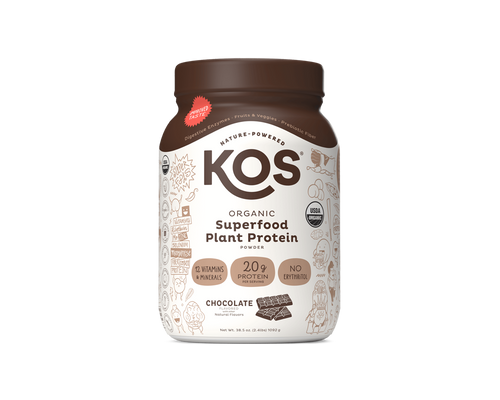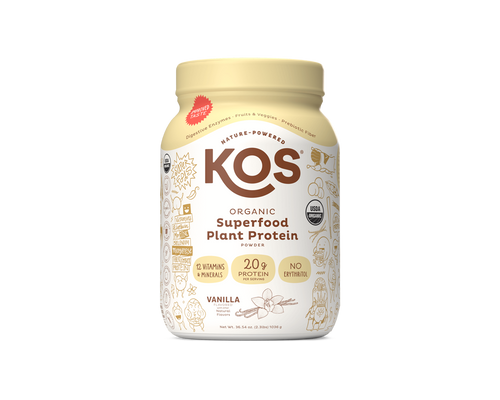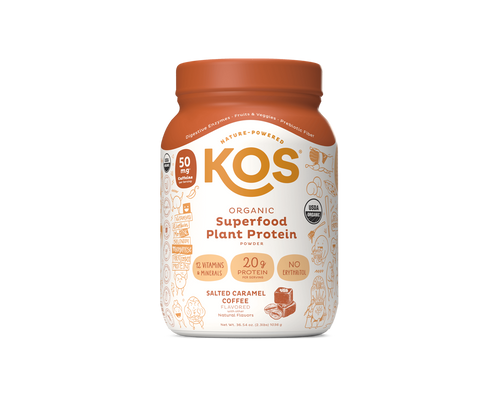Table of Contents
A Guide to Vegan Dieting Based on Protein
The vegan diet is often touted for being healthy and environmentally-friendly. It is a diet where foods are sourced from plants. No animal products are involved. The vegan diet is gaining popularity as more and more people learn of its benefits, both to personal health and to the environment. Vegan options are becoming more common in restaurants and grocery stores as awareness of veganism's game-changing nature becomes known to the mainstream.
Most people still believe that a plant-based diet will not provide sufficient protein. The fact is, the living plant kingdom has a full amino acid profile, and a vegan protein supplement will comprise a complete protein.

High protein fruits and vegetables
High protein fruits and vegetables include beans, legumes and soy products. Chickpeas, lentils, edamames, and black beans are high in protein. They are also good sources of essential amino acids, dietary fibers and antioxidants.
Nuts and seeds such as almonds, walnuts, chia seeds are also high in protein, as well as being good sources of essential fatty acids and minerals. Vegetable sources such as broccoli, spinach, kale, and so on can also be included in the diet for protein consumption. Vegan protein sources are healthier and better for the ecosystem than animal products
Bean proteins
It makes for a handy rhyme, but there is more to it than that. Legumes, such as beans, peas, and lentils, are a great source of protein and essential amino acids. They are also high in fiber, carbohydrates, and minerals, making them a complete protein and nutrient source.
Black beans are a vegan source of the essential nutrients folate, vitamin B6, copper, and manganese.
Apart from being a terrific sources of protein, beans are also loaded with fiber -- essential for peak digestive health, and that helpful feeling of fullness called "satiety", which takes the edge off one's desire to snack between meals. This is an important factor in support of weight management.
Beans can be cooked in a variety of ways to ensure maximum flavor and nutrition. Substitute beans in dishes that call for meat, such as tacos or burgers. If it's not too odd, you may refer to this meat-substitute process as "veganizing" -- the substitution of protein-rich plant matter for animal meat in a recipe.
Other ideas include cooking beans with rice or tofu to make vegan versions of Japanese or Chinese dishes, respectively. Beans are also delicious in soups and salads for additional nutritional value.
As you can see, beans in a vegan diet are an excellent way to eat healthy, without sacrificing flavor. In fact, the flavor profile of plants is much more varied and satisfying than the monochromatic flavors inherent in meat.
Are chickpeas a complete protein?
Chickpeas are a complete protein because they contain all nine essential amino acids, which are building blocks that help our bodies function properly.
Vitamins and minerals abound in chickpeas. Choline, folate, magnesium, potassium, iron — these chickpeas are nutritionally packed. Chickpeas are also rich in vitamin A, E, and C. It's hard to believe something this nutritionally powerful also goes by the name "garbanzo bean".
Do peas have protein?
Peas might be called the King of Plant-Based protein, and in fact most plant-based protein supplements use pea protein as the basis for their mixtures.
Peas are a protein-rich legume that is similar to lentils and chickpeas. They've lately appeared in vegan cheeses and meat substitutes, as well as shakes, yogurt, milk, and bars, among other things.
Pea protein is a full protein that provides all nine essential amino acids, making it a terrific vegan alternative protein source.

Is spinach a protein?
Although spinach has protein, it is in small amounts. 1 cup of raw spinach contains less than 1 gram of protein, according to the USDA Nutrient Data Laboratory.
Each 1-cup serving of spinach has just 7 calories, one gram of carbohydrate, and virtually no fat. Spinach, on the other hand, is an excellent source of vitamins and minerals such as vitamin K, folate, iron, vitamin A, and vitamin C.
Protein in broccoli
With 2.57g of protein per cup, raw broccoli (not everybody's favorite) is a surprisingly good source of protein. Broccoli also provides plenty of vitamins K, C, A, E, and many B vitamins, as well as minerals such as chromium, phosphorus, copper, and manganese.
Why choose broccoli when there are so many other nutritious choices? To begin with, it's delicious when properly prepared. Broccoli is also rich in antioxidants.
Plant Protein Chart
This presentation of comparative protein content is based on a chart devised by Dr. Chanda Davis. What does it show? It shows that plants do have all the essential amino acids, some in greater or lesser supply. By consciously combining complementary plant edibles, a complete protein profile is attainable with ease.

The truth is, protein is not limited to the domain of meat and animal products. Animal meat largely gets its protein from vegetable sources. Lastly, if we were to stop feeding grain to cattle tomorrow and began making it available to the world's nearly 1 billion starving, we could end starvation tomorrow. Literally.
A plant-based diet is a strangely powerful solution to many problems of dwindling resource management on this planet, and is an answer to ethical questions around the world's starving, as well. A vegetarian or vegan diet is tomorrow's diet. If you haven't looked into it, there is no time like the present.
FAQs
Can vegans get enough protein from nuts and seeds?
Yes, vegans can get enough protein from nuts and seeds. Nuts are an excellent source of plant-based protein and can help you meet your daily protein needs. For example, a one-ounce serving of almonds contains 6 grams of protein, while a two-tablespoon serving of hemp seeds provides 5 grams.
What is tofu and how is it used as a protein source?
Tofu is a food made from soybeans that is high in protein and low in calories. It is an excellent source of plant-based protein, making it a popular choice for vegetarians or vegans looking for protein sources. Soy does have some controversial issues surrounding its load of phytoestrogen, and soy allergies are not uncommon. Where soy is concerned, as with all things check with your doctor on your personal compatibility with soy.
What are some examples of legumes that are good sources of protein for vegans?
Black beans, kidney beans, and chickpeas are all good sources of vegan protein. They are high in fiber and contain essential amino acids. Lentils are a great source of plant-based protein and provide dietary fiber. They come in different varieties such as red lentils, green lentils, brown lentils, and black lentils. Peanuts and peanut butter are also excellent sources of vegan protein that can be used in many dishes or as a snack on its own.






